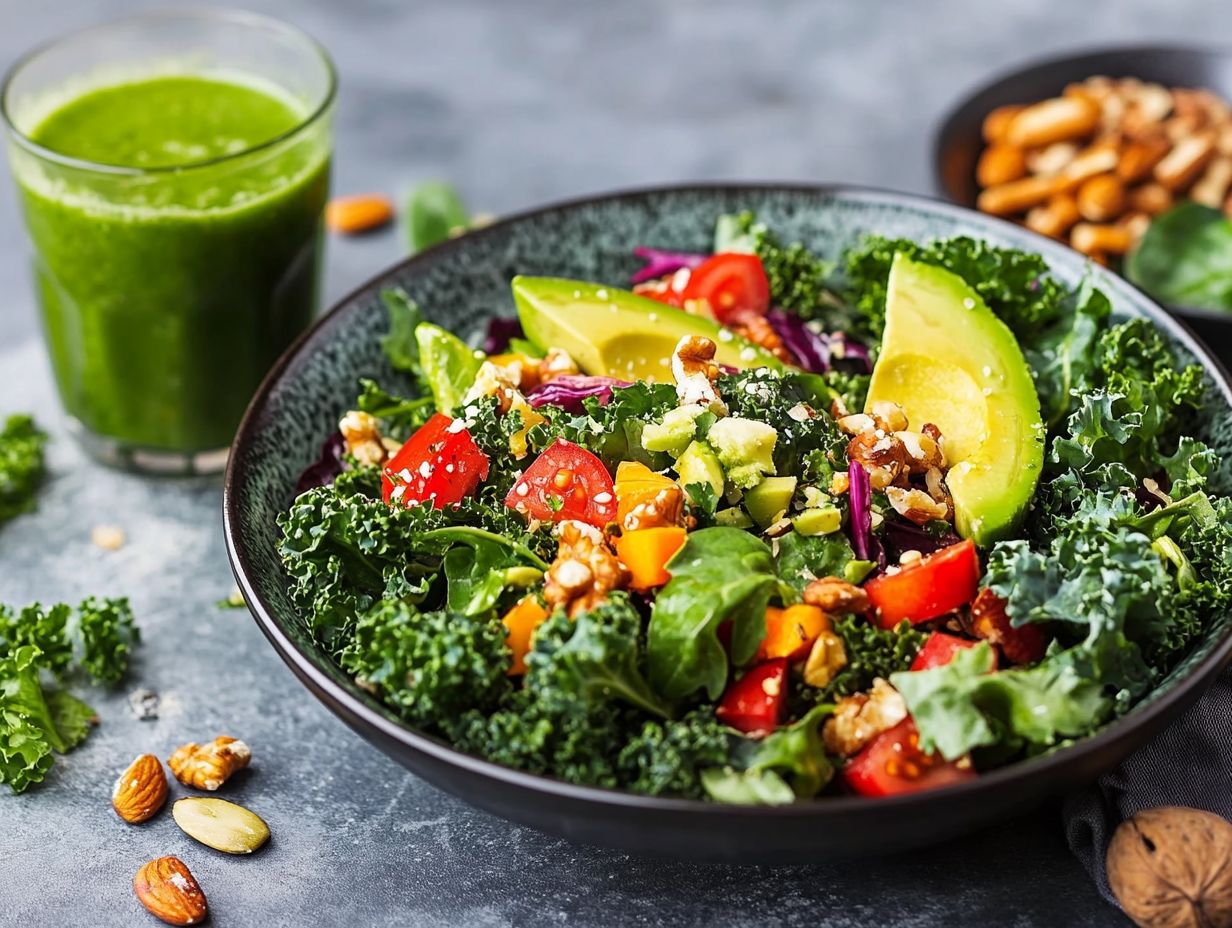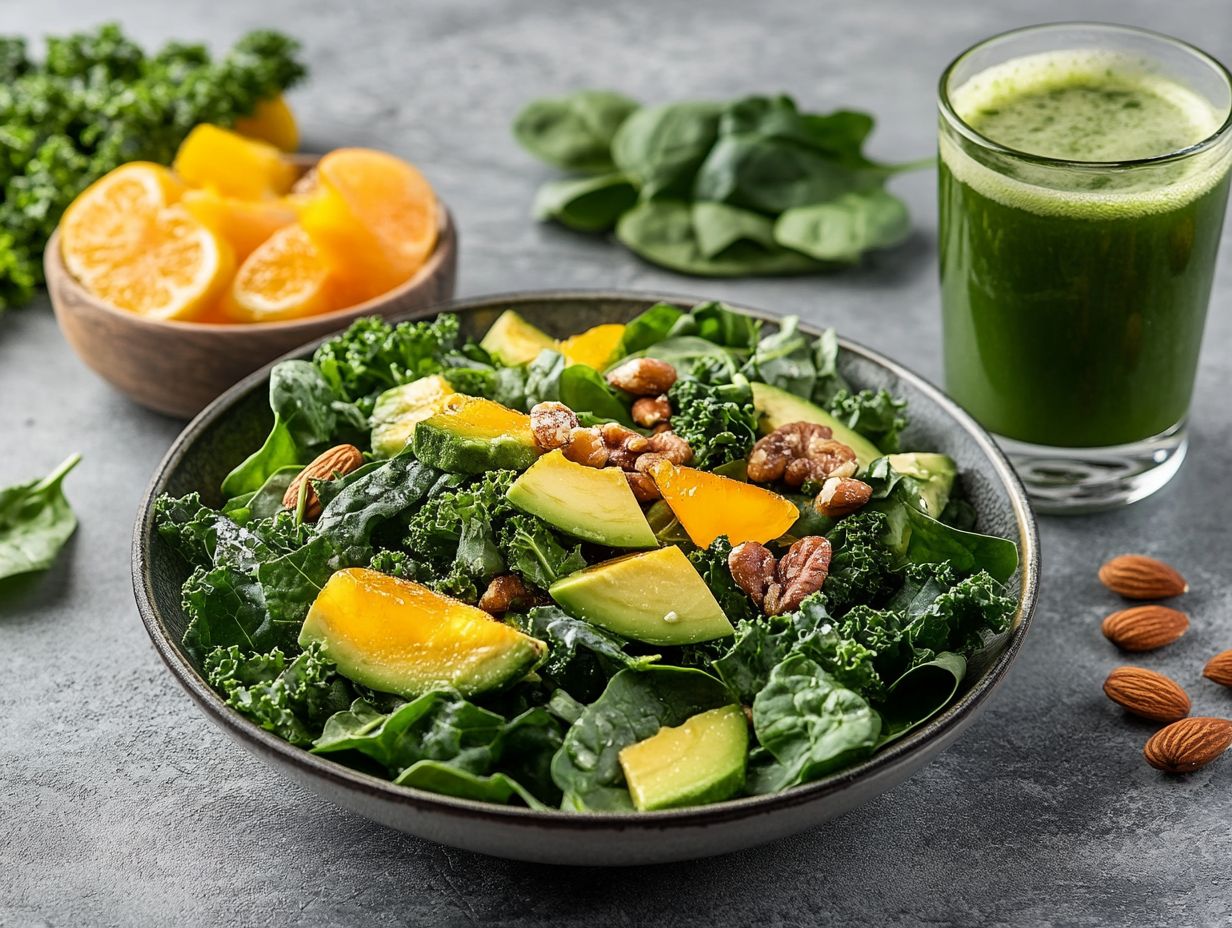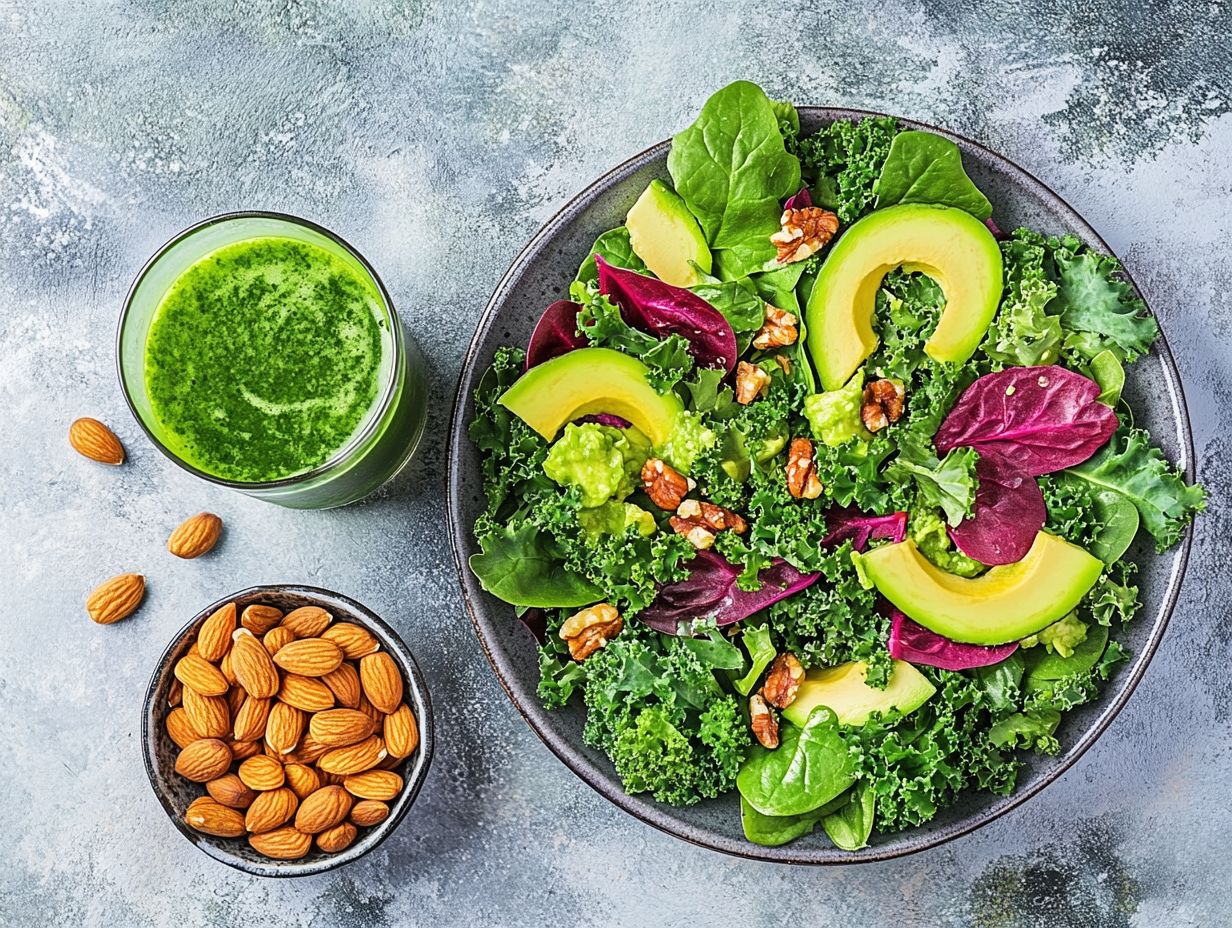Liver Detox: How to Support Your Liver Health
The liver is an extraordinary powerhouse essential for detoxification and your overall health. As the body s primary filtration system, it diligently processes nutrients and eliminates toxins. Engaging in a liver detox can amplify these vital functions.
However, lifestyle choices and environmental factors can contribute to a sluggish liver, leaving you feeling less than optimal. Let s explore the liver s vital functions and how you can keep it healthy!
With the right knowledge and mindful care, you can ensure your liver remains in peak condition for years to come.
Contents
Key Takeaways:

- Understand liver functions to support its detox process.
- Recognize symptoms of a sluggish liver to take swift action for better health.
- Make dietary changes and adopt healthy habits to maintain a healthy liver.
The Role of the Liver in Detoxification
The liver plays an essential role in the detoxification process, acting as your body’s primary organ for filtering toxins from the bloodstream. It breaks down substances and produces bile to facilitate digestion. These functions are vital for eliminating harmful elements like alcohol while preserving overall liver health.
This is crucial for preventing liver disease and supporting various detox programs. The liver’s detoxification pathways help address alcohol-related issues while fostering natural recovery through thoughtful dietary and lifestyle changes.
Understanding the Liver’s Functions
Appreciating the liver’s functions is vital for understanding its role in detoxification. The liver actively breaks down nutrients and stores vitamins, processing harmful substances like alcohol.
This organ is significant in regulating biochemical levels crucial for overall health. It produces bile necessary for digestion and synthesizes essential proteins, ensuring smooth bodily operation.
Detoxification is the liver’s most critical task, breaking down toxins and drugs to prevent harm to your body.
When it comes to alcohol metabolism, the liver transforms ethanol into less harmful substances, underscoring its importance in managing your alcohol consumption.
To support liver health, many people seek herbal supplements known for their protective qualities, such as milk thistle and dandelion root. These can promote liver regeneration and function, helping this essential organ navigate modern dietary challenges.
Signs of a Sluggish Liver
Recognizing the signs of a sluggish liver is essential for early intervention. Various symptoms may signal liver dysfunction, which can escalate into serious conditions like alcohol-related liver disease.
Being proactive about these signs allows you to take charge of your well-being and safeguard your liver s vitality.
Identifying Symptoms of Liver Dysfunction
Identifying symptoms of liver dysfunction is crucial for timely intervention. Common indicators include fatigue, jaundice, and abdominal discomfort, often worsened by excessive alcohol consumption.
Recognizing these symptoms early can significantly impact your health outcomes since the liver is essential for detoxification and metabolic processes. You might also notice dark urine, pale stools, and unusual bruising clear signals that your liver is struggling.
Ignoring these warning signs can lead to serious conditions like cirrhosis or liver failure, resulting in complications affecting your overall health.
Prolonged liver dysfunction has been linked to chronic diseases, highlighting the importance of addressing these symptoms promptly.
Ways to Support Liver Health

Supporting your liver health requires a simple plan that includes diet changes, exercise, and herbal supplements. These elements are crucial for effective detoxification and weight loss.
Dietary Changes and Supplements
Make dietary changes and include supplements like green tea, turmeric tea, and milk thistle. These can boost your liver health by promoting detoxification and lowering the risk of liver disease.
These foods have great antioxidant properties that fight oxidative stress and inflammation. Foods rich in antioxidants, like berries, leafy greens, and cruciferous vegetables, support your liver s natural detox processes.
Incorporate omega-3 fatty acids from fatty fish or flaxseeds. Eating these natural foods, along with a balanced diet, sets a strong foundation for your liver health.
Lifestyle Habits for Liver Detox
Healthy lifestyle habits are key for liver detox. Regular exercise, staying hydrated, and moderating caffeine consumption help optimize liver function.
Exercise boosts circulation, helping transport vital nutrients and eliminate toxins. Hydration is equally important; water helps the liver flush out impurities effectively.
Practice moderation with caffeine to prevent overwhelming the liver. Balancing these habits creates an environment that supports liver health, enhancing your overall vitality.
Detoxification Methods for Liver Health
Many detox methods can boost liver health, including detox programs and lifestyle changes. For better liver function, staying away from alcohol is a crucial step.
Types of Detox Programs
Detox programs for liver health often focus on specific foods and may suggest herbal supplements. They promote a diet rich in antioxidants and essential nutrients to help the liver eliminate toxins more effectively.
Look for staples like broccoli and Brussels sprouts, known to boost enzyme activity in the liver. Many detox plans include herbs like milk thistle and dandelion root, recognized for their liver-protective benefits.
Studies show that these programs can improve liver enzyme levels and enhance overall well-being. Remember to stay hydrated and cut back on processed foods to further optimize your liver health!
Benefits and Risks of Each Method

When you re considering detoxification methods for liver health, it s vital to carefully weigh the benefits and risks of each approach. The scientific evidence supporting various detox programs can be quite inconsistent.
Take, for example, popular detox methods like juice cleanses and herbal supplements. They often tout their ability to rejuvenate liver function, but not all studies back these claims. A review published in the Journal of Hepatology points out that while certain herbs, such as milk thistle, might provide some liver-protecting effects, their effectiveness really hinges on dosage and your individual health circumstances.
On the flip side, diving into extreme detox regimes can result in unwanted issues, including nutrient deficiencies, muscle loss, and electrolyte imbalances. That s why it s essential to evaluate the clinical evidence and consult health professionals before embarking on any detox journey.
Maintaining Liver Health in the Long Term
To ensure long-term liver health, you must adopt a proactive approach that includes preventive measures, regular check-ups, and diligent monitoring of liver function. Staying vigilant helps you catch potential health issues early on, keeping you healthier for longer!
Preventive Measures for Liver Health
Taking steps to protect your liver health is crucial. Focus on maintaining a healthy diet, engaging in regular exercise, and steering clear of excessive alcohol consumption.
A balanced diet brimming with fruits, vegetables, whole grains, and lean proteins plays a vital role in supporting liver function. Incorporating foods rich in omega-3 fatty acids, such as fish and nuts, can provide additional benefits.
Engaging in regular physical activity, whether it’s brisk walking or running, not only helps you maintain a healthy weight but also enhances overall liver function by improving metabolic health.
Staying hydrated by drinking plenty of water and minimizing processed foods high in sugars and unhealthy fats can have lasting positive effects on your liver s vitality.
Making these lifestyle changes helps you improve your well-being while significantly reducing the risk of liver-related diseases.
Regular Check-ups and Monitoring
Regular check-ups and monitoring are crucial elements in your comprehensive strategy for maintaining liver health and spotting any early signs of liver disease.
These assessments help you detect potential abnormalities in liver function and allow healthcare providers to craft individualized health plans that support your liver’s optimal performance. By routinely evaluating liver enzyme levels and undergoing necessary imaging studies, you can stay ahead of potential issues like fatty liver disease, hepatitis, or cirrhosis.
Recognizing the importance of these evaluations encourages you to engage proactively with your health, empowering you to make informed lifestyle choices that protect your liver. Therefore, consistent monitoring plays a pivotal role in maintaining your overall wellness and preventing serious liver complications in the future.
Frequently Asked Questions
What is liver detox?

Liver detox is a process of eliminating toxins and harmful substances from the liver, which is responsible for filtering and processing the blood in our body.
Why is it important to support liver health?
The liver plays a crucial role in our overall health, helping remove toxins, producing important proteins, regulating hormones, and assisting in digestion. By supporting liver health, we can ensure proper functioning of our body and prevent various health issues.
What are some signs that indicate a need for liver detox?
Some common signs that may indicate the need for a liver detox include fatigue, skin problems, digestive issues, allergies, and brain fog. However, it is always recommended to consult a healthcare professional for proper diagnosis and treatment.
Don’t wait consult your doctor to discuss the best liver health strategies for you!
How can I support my liver health?
Support your liver health by making lifestyle changes. Focus on a balanced diet, limit alcohol, and avoid toxins.
Regular exercise, staying hydrated, and managing stress are also essential.
Are there specific foods that help with liver detox?
Absolutely! Foods like green leafy vegetables, garlic, turmeric, berries, avocado, and lemon are fantastic for liver detox.
These foods are rich in antioxidants and nutrients that enhance liver function.
Can everyone do a liver detox?
Liver detox is safe for most people. However, always consult a healthcare professional before starting any detox program.
Individuals with certain health conditions or those on specific medications may need to adjust their detox methods.






